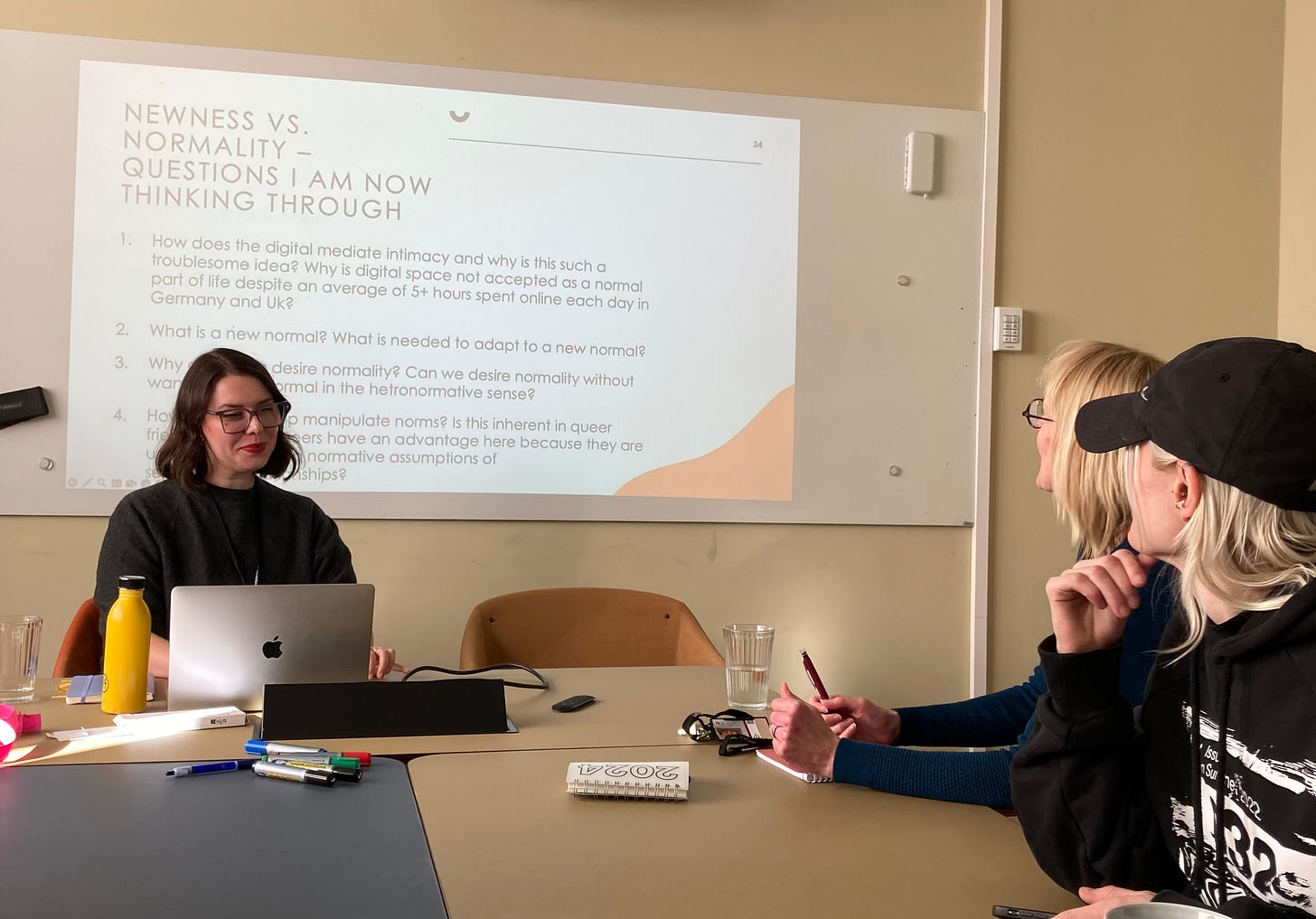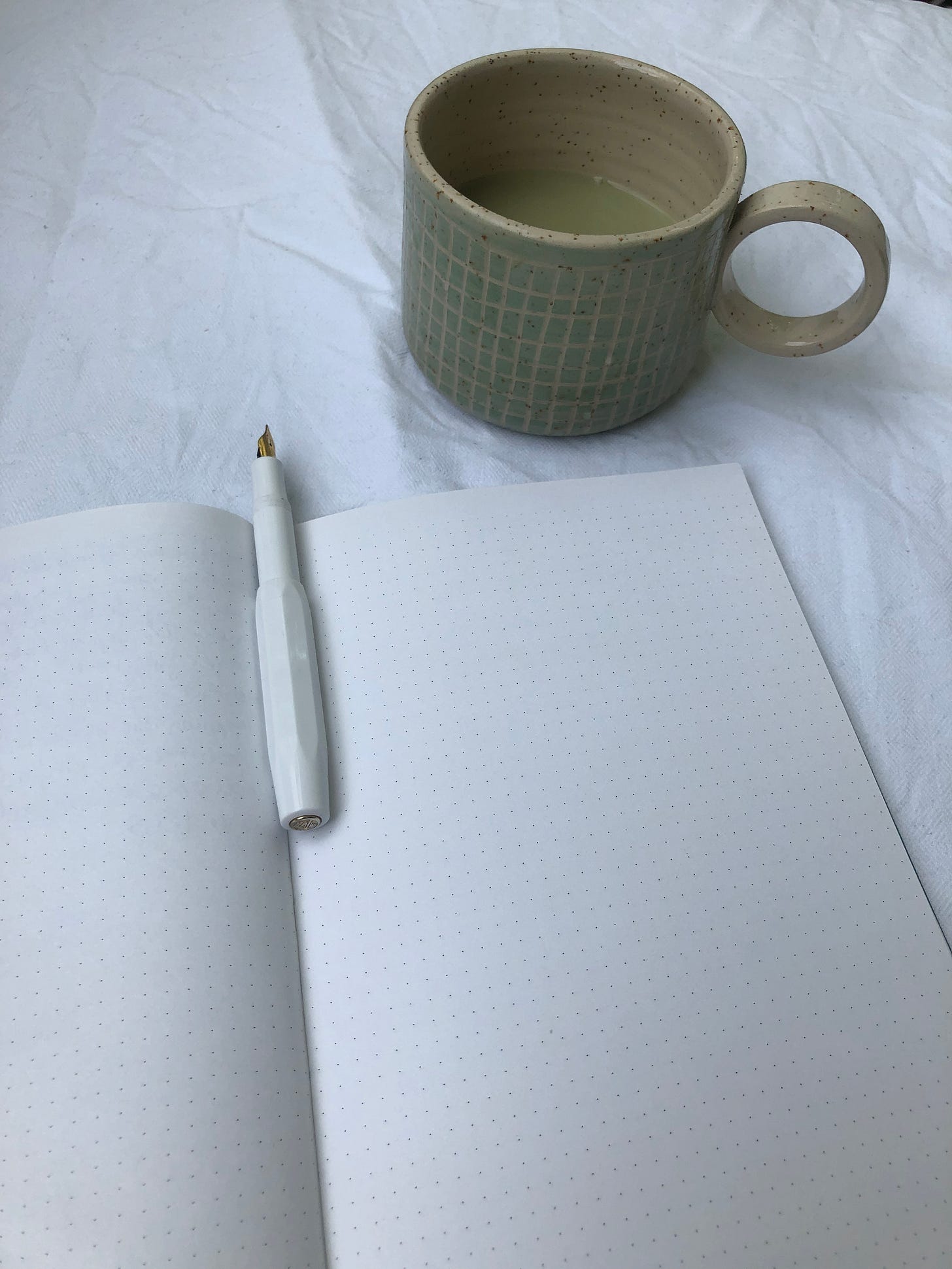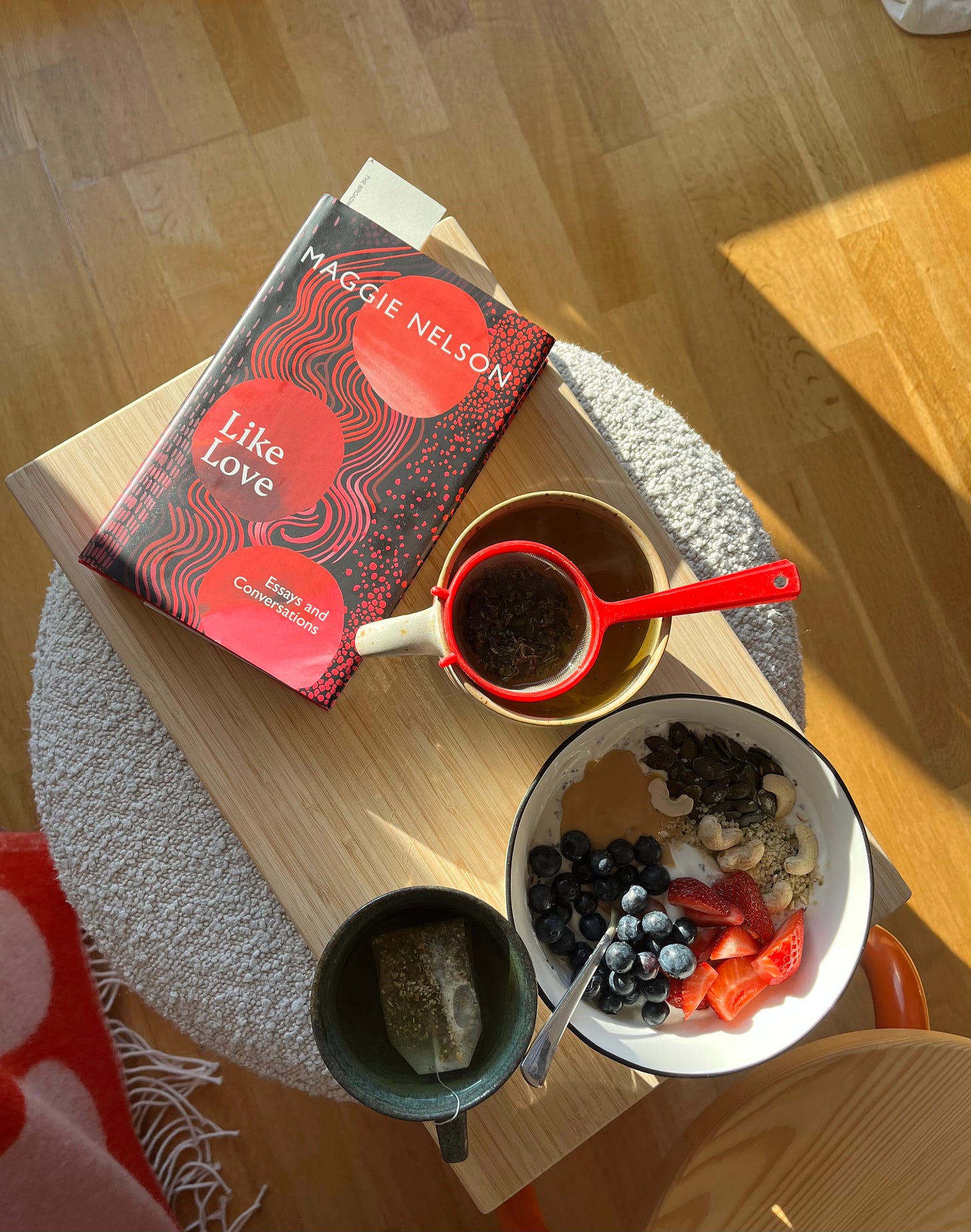I don't know how to write anymore...
A 6 month anniversary post
Good morning! It’s been 6 months since I started Lit Lit, so here’s something a little different. Enjoy 💝
I have spent the last 10 years in academia (what the fuck??). I started my undergrad in 2014, then did a Master’s and am now in the final year of my PhD. Over this time, I have spent hours every day honing my academic writing skills, I have written and edited hundreds (thousands?) of pages in essays and dissertations, conference papers, journal articles, and the dreaded funding applications for every tiny thing. During a brief period between projects, after finishing my Master’s and before starting my PhD, I wrote mostly applications, and then, for pleasure, I started writing fiction. I even published a few stories and essays in literary magazines (here’s a silly one). But with the PhD, writing has become a daily practice that left little room for anything else, and so I barely wrote anything else, for almost four years.
I’m not really interested in writing fiction at the moment, but do want to forge a writing practice that is less tied to the conventions of academia (though my queer thesis already takes liberties some disciplines would frown at), a creative writing practice in which I decide where I want to go, without having to tick boxes and without submitting them for review and evaluation. Enter Substack.
Starting this Substack of mostly book reviews, essentially writing about other people’s writing, has been a way for me to think about writing without feeling like I have to be super creative, I don’t have to think up stories, I only share what I enjoyed (or didn’t, but that’s rarely the focus) in other people’s stories. It allowed me to enjoy playing with written language in a low-stakes environment—despite the fact that it is out in public for all to see. But sharing the books I’ve found worth reviewing feels like a public service, honestly, because I’ve reviewed some proper masterpieces, so it feels great to share them with you all.
And so I began thinking about what the differences are between academic and creative writing, even if both are non-fictional. First of all, I’d never start a sentence let alone a paragraph with ‘and’ in academia, but here it just felt right. But really, it is the way of looking at things that is different. In a research paper, I want to rigorously understand every single aspect of a phenomenon, articulate its definitional haecceity. I need to read and reference what others have written on the same issue, and my feelings, generally, don’t matter. If I want to make a point, I prove it with data, if I ask a question, it follows from existing research—and ideally, nobody else should have answered it already, or at least I’ll want to have a new perspective on it. For academia, these points are necessary, they may sound excessively rigid, but are needed to ensure intersubjective conclusions (objectivity is a myth). I must also clarify: academic writing, for me, is an incredibly creative process, despite the many constraints, or perhaps because of them, I creatively wriggle within and against the borders of academic conventions and I love it. With creative (non-fiction) writing, however, my perspective matters differently, I am allowed a different level of bias, and my feelings can inform how I write about a subject. I get to omit things I dislike, rave about what I do like, and put the focus of a piece where I see fit. It is more flexible, I rarely feel like I push against any constraints (except the ones I burden myself with), yet it allows me to profoundly consider a subject still, to write observantly, and to offer thoughtful conclusions.
This is not at all to place more value on one type of writing over the other, instead, I am trying to consciously undo the value I’ve already attached to academic over creative writing, especially in creative non-fiction. To be honest, often when I read non-fiction books or essays (popular science and self-help books in particular), I scoff at their lack of rigour and more often than not do a little google scholar search to see what the research actually says on the subject. At the same time, I long for beautifully crafted sentences and more personal colouring in academic writing; where the humanities may allow for this, the social sciences often turn their backs on aesthetics. I recently came upon an exchange between Maggie Nelson and Brian Blanchfield, published in Like Love, Nelson’s collection of essays and conversations about art. Nelson writes to Blanchfield:
‘After working in academia a bit, and then moving to an art school environment, I would say that’s the biggest difference: academia privileges being scrupulous, because whole careers depend on poking holes in—exposing—weak or undeveloped points in other people’s arguments. Art doesn’t function on the level of argument—or, at least, not all art, or most art—so the exposure model doesn’t hold. One loses a degree of rigor in the change, but one also gains.’
I think Nelson has really put a finger on what I have been thinking about here. One also gains. While Nelson and Blanchfield speak about poetry, mostly, I feel that this concept of losing one thing but gaining another is inordinately important here. I gain my own voice, because I may write about whatever I want. I gain momentum, because I can hack out a post and see it published right away, taking away the anxiety that has often accompanied the lengthy process of academic writing for me. I also gain the license to imperfection that comes with the quick turnover: if I write something and publish it the next day or the day after, there simply isn’t time to make sure it’s perfect, and it doesn’t (always) need to be. When I then find a typo or realise maybe I should have thought some more about one thing or another, I don’t beat myself up over it because I spent a day or two on it, not months or years (also, it turns out you can edit Substack posts after publication, but that doesn’t feel quite right to me either, I’ll keep my mistakes, thank you very much).
I felt like I didn’t know how to write anymore, academia directing, tainting my every thought—but starting Lit Lit, and before it, writing reviews for my own pleasure, helped pull me out of a slump. I started with book reviews, then began to start each post with a personal anecdote in addition to the review; I veered out to writing about art and culture, and now I’m adding essays to the mix. Starting this Substack opened my eyes to a joyful and liberated writing practice, and I have savoured writing every single one of my posts for Lit Lit. Thanks for joining me on the ride!
In case you missed it: my edited volume about Stone Butch Blues came out last week, you can read it here (free pdf) or read my post that gives some context here.
Thanks for reading, see you next time!






THIS!!!!!!!
Not to get too sappy, but I’m so glad I found you here! I relate so much to your situation. I love how you articulated being between a rock and a hard place with critiquing popular nonfiction on the one hand and, on the other, wishing for more out of academic work. In the meantime, we have great writing on here that continues to be generously low stakes :)